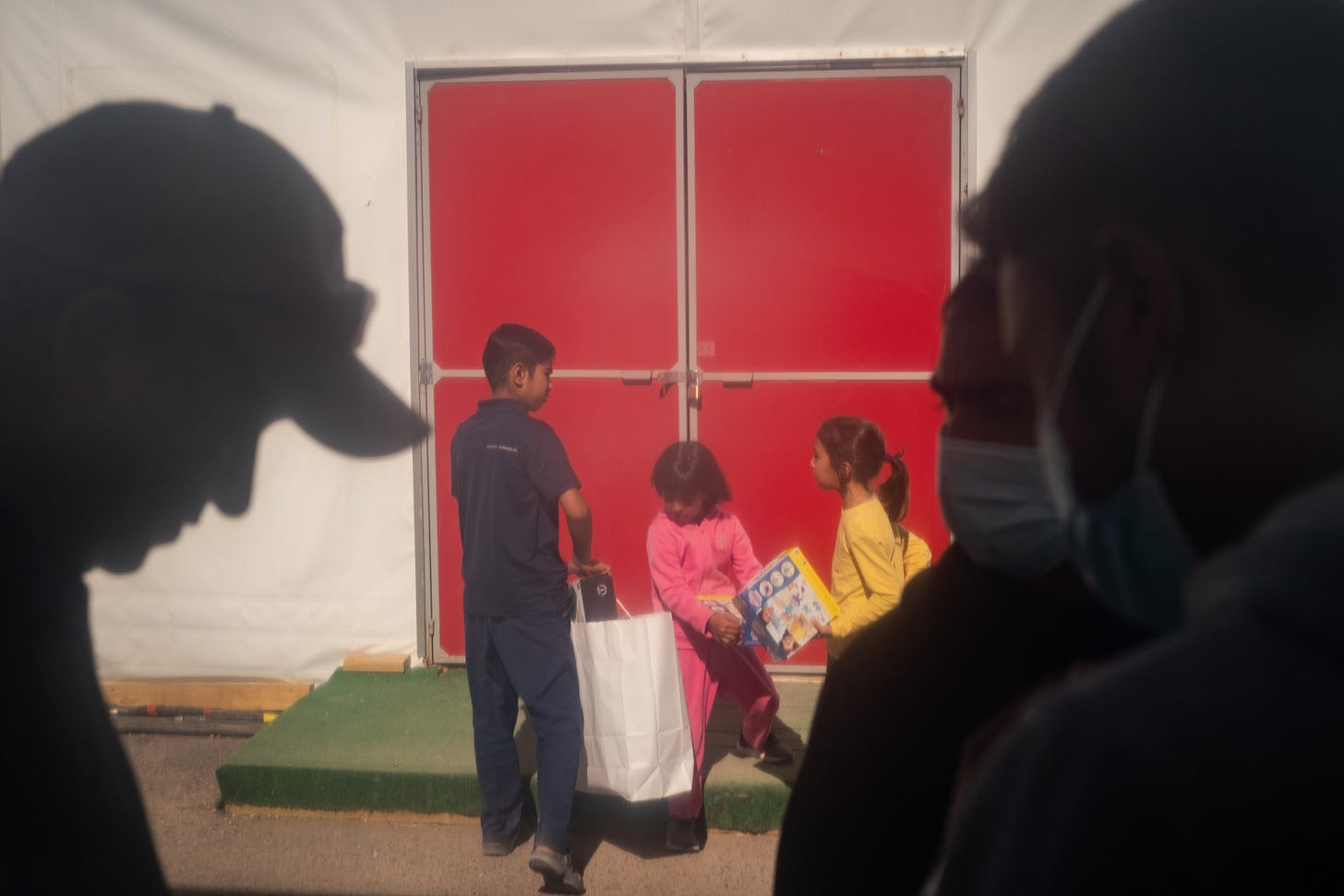‘If They Detain Me, Can I Give Your Number to My Children?’
Trump’s immigration orders are harming our Afghan allies.

OVER THE LAST FOUR YEARS, as the United States effortlessly turned its back on its promise to our Afghan allies, a small cadre of volunteers has paused their lives to honor the pledge.
Since the fall of Afghanistan in August 2021, I’ve lost so many Afghan brothers and sisters that I cannot even remember their names. The Taliban murdered some. Others have been kidnapped and gang raped by the Islamic State. While American volunteers have shouldered a tsunami of moral injury, it’s the Afghans who have suffered the most. According to press reports, tens of thousands of Special Immigrant Visa applicants (many interpreters), P1/P2 refugee applicants (many of them former Afghan commandos), and others will have their pathway to America closed because of President Donald Trump.
Their crime: Being Muslim and originating from a country that we abandoned to a gender apartheid regime.
LAST YEAR, Nazir1 finally made it to the United States via the southern border, carrying a letter of recommendation I wrote him in Afghanistan. He and his family flew to Brazil and made the journey to the U.S.-Mexico border from there, asking for humanitarian asylum from the first border guard he met, exactly as American law specifies. Since then, they’ve been adjusting to safety and the radically different culture of their new home.
Less than a week after President Trump's inauguration, Nazir sent me a text:
I’ve received similar texts from other Afghans in America—or seeking to come here—for nearly two weeks, non-stop, around the clock. It’s no longer just the Taliban they fear, but the government that surrendered to the Taliban.
For nearly a quarter of a century, the U.S. government was their ally against the Taliban, al Qaeda, the Haqqani network, and the rest of the constellation of monsters and murderers. Now that government is just another armed force trying to hunt them down. America’s betrayal of these brave Afghans—and the veterans like me who fought with them, and our families—is so big that it blocks the sun and moon and stars.
NEARLY ALL OF MY AFGHAN FRIENDS work at refugee centers. Since many of them studied at American military universities, they’re perfect ambassadors for new arrivals from Afghanistan, helping them access public housing, Medicaid, and leads for their first jobs.
President Trump’s newest initiatives will likely cost many of them, if not all of them, their jobs despite the fact that they are all here legally.
Men like Nasirullah “Jon” Safi, a legendary combat interpreter who fought in multiple deadly battles in Afghanistan, now guides refugees from around the world from their first arrival to their first new apartments. Many, like Col. Momin Marofi, a graduate of the U.S. Army Command and General Staff College, work for private refugee organizations, “Last week, [the International Rescue Committee] told us that we will all lose our jobs,” said Abdullah, a green card holder who has worked for the IRC for three years.
As Abdullah and others like him lose their jobs, their families will suffer. Many Afghans face enormous headwinds when adjusting to life in the secular West. While they’re grateful to live in the United States, American culture, focusing on individuality and material success, runs counter to Afghan culture, where family and honor matter most. Nevertheless, every single Afghan ally my organization helped—more than 500 Afghan families altogether—has gone on to succeed in the United States.
CUTTING OFF REFUGEE AND RESETTLEMENT services will only exacerbate the terrorism problem the Trump administration claims to want to solve. The Taliban, al Qaeda, the Islamic State, and other groups remain active, especially in the Taliban’s Afghanistan. If Nazir can walk across the border, then so can al Qaeda, Iran’s clandestine officers, and others who wish America and Americans harm.
Newly arrived refugees, especially men, need employment opportunities to help their families. Refugees only receive a few months of federal assistance before they’re on their own. Newly arrived, unemployed Muslim men will become more susceptible to radicalization without employment or a path forward. The Islamic State will play on their inability to provide for their families and convince them their only path toward salvation is to kill Americans.
Instead, the Trump administration should be using our trusted and vetted Afghan allies to help identify potential domestic terrorism threats. These men and women know radical Islamic terrorists—they’ve been fighting them their entire lives.
Instead, the Trump administration seems hell-bent on rounding up the usual suspects in a grand show of force. But like so many times in the past, innocent Afghans will be hurt.
Not his real name.






